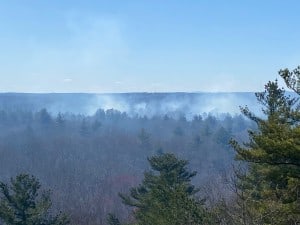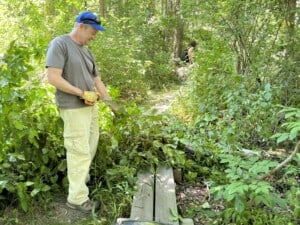Great news from the Executive Office of Environmental Affairs.
Drought Conditions Across Commonwealth Return to Normal
Monitoring of Water Resources to Continue, Indoor Water Conservation by Public Necessary
With above normal precipitation at the end of March, all of April and the beginning of this month, all indices across the Commonwealth have recovered fully. As a result, Energy and Environmental Affairs (EEA) Secretary Matthew Beaton today declared the following drought levels throughout the Commonwealth: Normal Condition levels for the Connecticut River Valley, Central, Northeast, Southeast Regions as well as the Cape and Islands; down from a Drought Advisory in the month of April, and unchanged for the Western Region. The declarations were the result of a recommendation issued from a recent meeting of the Drought Management Task Force, comprised of state and federal officials, and other entities.
“With the state experiencing above average precipitation for the past few months, and the continuation of best water conservation practices administered by the public, the Commonwealth’s water systems have finally reached normal conditions after two plus years of running a deficit,” said Energy and Environmental Affairs Secretary Matthew Beaton. “Now that the outdoor watering season has begun, we must all remain diligent in our conservation practices to ensure that when prolonged dry conditions occur in the future, the state’s reservoirs, groundwater, soil moisture and streamflow systems aren’t further stressed, allowing them to recover quickly.”
“While we are pleased that drought conditions have ended for now, residents are encouraged to make indoor and outdoor water conservation a way of life to help preserve this essential resource.” said Massachusetts Emergency Management Agency (MEMA) Director Kurt Schwartz.
Normal Condition levels, as outlined in the Massachusetts Drought Management Plan, indicates precipitation and groundwater levels that have returned to normal, and warrants routine data collection and distribution amongst government agencies.
The state continues to monitor and assess the drought situation, and any associated environmental and agricultural impacts. As the Commonwealth transition’s into the growing and watering season, the state reminds residents to think carefully about what they plant, encourages good landscape practices, recommends watering plants only early in the morning or late in the evening to minimize evaporation. Furthermore, the state asks the public to be mindful of the amount of water they are using, residents are asked to reduce indoor water use, address leaks as soon as possible, and for larger buildings and businesses to conduct water audits to identify areas of leaks and potential water conservation. All these steps will greatly help reduce water use to ensure essential needs such as drinking water and fire protection are being met, habitats have enough water to recover, and to sustain our water supplies and have enough for the environment.
“The Quabbin Reservoir remains slightly below normal, but the level continues to rise,” said Massachusetts Water Resources Authority (MWRA) Executive Director Fred Laskey. “It is still important for our customers to conserve water, particularly as the weather warms up and outdoor usage starts to increase.”
The Massachusetts Department of Environmental Protection (MassDEP) will continue to provide technical assistance to communities on managing systems, including assistance on use of emergency connections and water supplies.
“Despite the lifting of the drought advisory, we will continue to offer technical assistance to public water suppliers and communities across the Commonwealth to help them manage their water resources,” said Massachusetts Department of Environmental Protection Commissioner Martin Suuberg. “And as we move into the warm-weather months, when water use is at its peak, we encourage water suppliers to work with their customers to continue their efforts to use water wisely.”
The declaration of a Normal Condition means that the Drought Management Task Force no longer meets on a regular basis; however, state agencies will continue to closely monitor and assess conditions across the state, coordinate any needed dissemination of information to the public, and help state, federal and local agencies prepare additional responses that may be needed in the future. For further information on water conservation and what residents can do, visit the Executive Office of Energy and Environmental Affairs’ drought page, the Department of Conservation and Recreation’s drought management page, and the MassDEP Water Conservation page.














